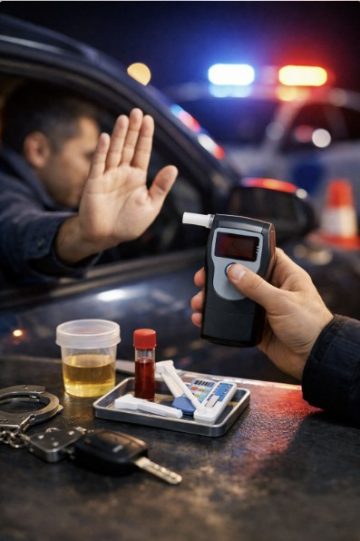The PETH Test: A Crucial Tool to Demonstrate the Absence of Alcohol Problems in Court
When you are prosecuted in court for an alcohol-related traffic offense, it is essential to prove that you do not suffer from chronic alcohol abuse, especially if the offense occurred under exceptional circumstances. The PETH test (phosphatidylethanol) can be a key element in this process.
What is the PETH Test?
The PETH test is a blood test that measures the presence of phosphatidylethanol, a biomarker that is only formed in the blood in the presence of alcohol. Unlike other traditional alcohol tests, such as urine or hair analyses, the PETH test is highly specific and sensitive to alcohol consumption. It allows detection of regular or excessive alcohol consumption over the previous two to four weeks.
Why is the PETH Test relevant in a judicial context?
When a person is accused of driving under the influence of alcohol, the court may sometimes question the frequency and intensity of the defendant’s alcohol consumption. The PETH test can prove that the person’s alcohol consumption was occasional or accidental, rather than indicative of a problematic or chronic drinking habit.
How can the PETH Test help you in court?
- Demonstrating the absence of alcohol abuse: If you have not consumed alcohol excessively in the weeks leading up to the test, the result will be negative or low, which can serve as evidence that you do not suffer from alcohol abuse.
- Strengthening your defense: In cases of exceptional circumstances (a birthday party, a wedding, a gathering with friends), the PETH test can help show that the offense was an isolated incident and not the result of a dangerous drinking habit.
- Influencing the judge’s decision: By presenting negative or low PETH test results, you can bolster your credibility in court. This can help reduce penalties or avoid more severe sanctions linked to suspected alcohol addiction.
How to take the PETH Test?
To take a PETH test, you must first consult your general practitioner. They will provide you with a medical prescription that will allow you to perform the test at a laboratory.
Once you have the prescription, you will need to schedule an appointment with a medical laboratory. The blood sample collection is quick and simple. The laboratory will then analyze your sample to determine the level of phosphatidylethanol in your blood, which will help assess your recent alcohol consumption.
Conclusion
The PETH test is a valuable tool for anyone seeking to prove that they do not have an alcohol problem when appearing for an alcohol-related traffic offense. Thanks to its reliability and specificity, it can make the difference between a severe penalty and a reduced sanction, depending on the evidence that your alcohol consumption was exceptional and not habitual.
If you are being prosecuted for an alcohol-related offense, feel free to contact me to assess whether a PETH test could assist in your defense.




